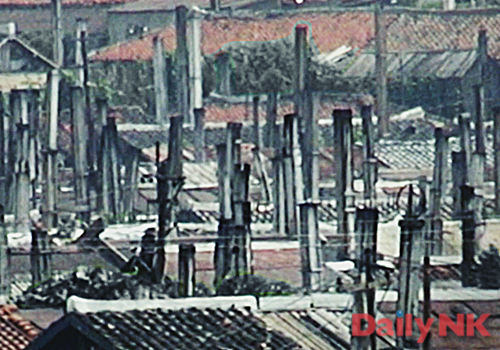Temperatures have plummeted in North Korea, and North Pyongan Province has reportedly been at the center of a carbon monoxide poisoning epidemic as a result of lax regulations on coal heating in private homes.
A source in the area informed Daily NK on January 9 of an incident where “three female police officers (age 22, 25, and 28) in Taegwan County died of carbon monoxide poisoning after burning coal every day to warm up.”
“Most people are calling it a tragedy that such young people lost their lives, but there has also been a swirl of rumors that someone intentionally used poison gas on the group, perhaps as revenge for something,” he continued.
It is common for North Koreans to burn coal briquettes to heat their homes in winter – a method which produces lethal fumes that must be properly dispersed with ventilation to prevent prolonged exposure by the home’s inhabitants.
In response to the problem, authorities have in the past directed local People’s Unit leaders to organize inspection teams to visit each house and order people to open doors and windows, to improve the air quality in homes.
The problem is that it is not very feasible, the source explained, to expect such inspection teams to be formed when locals are all busy working with other activities.
Daily NK has also received a report of similar poisoning incidents from another source in Sinuiju.
The source reported that “around 10 people died from carbon monoxide poisoning on December 29 in Sinuiju, bringing the average in the area to about 7 deaths from such poisonings per day.”
Meanwhile, North Korea has not shown signs of adopting major policy changes or city-level directives to address the issue. Administrative paralysis and negligence on the part of the authorities means that people are expected to perform their own repairs, leading to a widening of the income gap.
In addition to failing to address such incidents, medical facilities across the country are also lacking proper supplies and equipment to treat patients suffering from carbon monoxide poisoning. It is likely that the current state of affairs will continue until the North Korean authorities institute a major policy change and enforce new safety regulations.





















